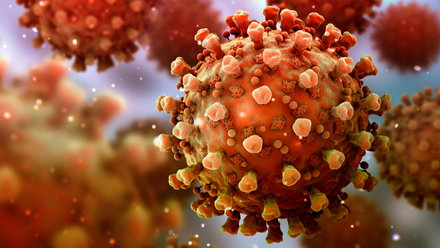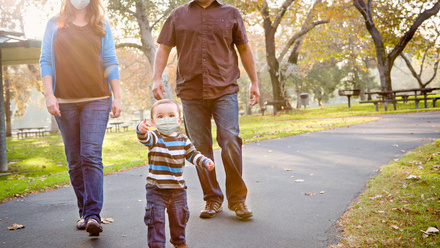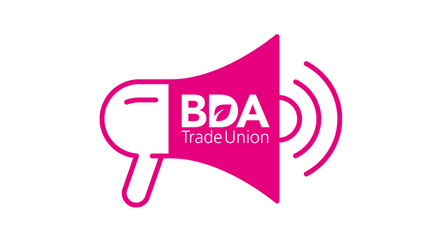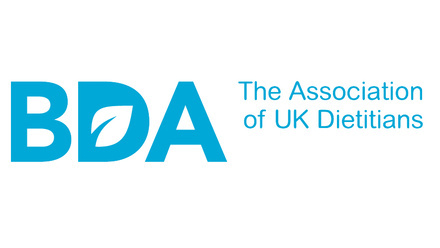Last updated: 18 May 2021
Dietitians and the BDA have been asked many questions about nutrition and dietary issues related to the COVID-19 / Coronavirus pandemic.
We would always encourage you to start by following the latest advice from governments, the NHS and public health authorities. It is important to note that guidance differs in England, Scotland, Wales and Northern Ireland. You can find more information here;
- UK Government and NHS in England
- Scottish Government and NHS Inform in Scotland
- Welsh Government and Public Health Wales in Wales
- NI Direct and NI Department of Health in Northern Ireland
In all cases, if you or someone you live with have COVID-19 symptoms, you should self-isolate. If you have symptoms yourself, you should try to get a test.
If you have more specific concerns, please visit or call NHS 111 (NHS 24 in Scotland, NHS 111 in Wales or call 111 in NI) or contact your local health services in a safe and appropriate manner online or by phone. If you have a serious health issue, it is important that you still seek medical help. If you have a medical emergency, dial 999.
We have created the following Frequently Asked Questions, which we will update and add to on a regular basis.
General
What general nutrition advice would you give for an someone who has contracted COVID-19 and is self-isolating as a result?
If you feel you cannot cope with your symptoms at home, your condition is worsening or you have had symptoms for more than seven days, visit NHS 111.
If you are self-isolating and especially if you have symptoms, it is important to maintain good nutrition and hydration. Make sure you are eating and drinking regularly, even if you have low appetite.
- You can find more information on eating a healthy diet in our Healthy Eating Food Fact Sheet
- We have more information on staying hydrated in our Fluid Food Fact Sheet
If you are in an at risk group or you are concerned about someone who is, please read some of our more detailed questions below.
If you have specific nutrition needs, it is important that you continue to follow the dietary recommendations made by your dietitian or other healthcare professional. This may involve asking friends or family members to get you specific foods so you can continue to follow an appropriate diet.
Contact your dietitian or other healthcare professional in a safe way if you for further support.
What if I've had COVID but have continuing symptoms?
Once you have got over the immediate illness, you may find that you have residual symptoms or issues, such as weakness or suppressed appetite - sometimes called "Long Covid".
We would recommend the Your COVID Recovery website, which has multidisciplinary advice to aid your recovery from the disease.
Our Critical Care Specialist Group have worked with the charity ICUsteps to develop specific advice on various issues you may face during recovery, such as swallowing difficulties, lack of appetite or bloating.
You can also contact your local health services if you have concerns for support, including from your community dietetic team.
What should I do if I'm worried about COVID-19? What about my mental health?
It is understandable that many people will feel anxious or upset about the COVID-19 outbreak and the impact that it has on their lives. This is a stressful time even as lockdown is lifting and looking after your mental as well as your physical health is important.
Our colleagues at MIND have some great resources to help, including on planning for self isolation, looking after mental wellbeing and accessing further support.
Public Health England have also published advice on mental health and wellbeing. Key tips include:
- Keep connected
- Support and help others
- Look after your sleep
- Manage difficult feelings and talk to others
- Get the facts
You can also read our Food and Mood Fact Sheet to consider how your diet impacts your mental health.
What about staying active when I'm self isolating?
Professor Rachel Batterham from the RCP has developed a series of videos (featuring dietitian Dr Adrian Brown!) which show how people of different ages and abilities can stay fit and healthy even while staying at home. Take a look:
- Older adults, or people who are less active: https://youtu.be/8Frf1EjnZ_Y
- Active adults: https://youtu.be/S6dD0A7M8wY
- Children and young people: https://youtu.be/U9W9RJpQ7cY
Supplements
Can I boost my immune system through my diet?
Simply put, you cannot “boost” your immune system through diet, and no specific food or supplement will prevent you catching COVID-19/Coronavirus. Good hygiene practice remains the best means of avoiding infection. Wash your hands, maintain social distancing and wear a mask if you can.
To date, the European Food Safety Authority have not authorised any claim for a food or food component in the UK to be labelled as protecting against infection. More info here.
There are many nutrients that are involved with the normal functioning of the immune system, so we would encourage maintaining a health balanced diet in order to support immune function (include copper, folate, iron, selenium, zinc and vitamins A, B6, B12, C and D). We don't recommend any one food over another, but instead encourage eating a variety of foods to maintain a health balanced diet. See our Healthy Eating Food Fact Sheet for more tips and guidance on how to do that.
Our Older People Specialist Group and the Rooted Project created an infographic you can share.
Should I take a vitamin D supplement?
Vitamin D works with calcium and phosphorus for healthy bones, muscles and teeth. It is also important in protecting muscle strength and preventing rickets, osteomalacia and falls. SACN, NICE and PHE recently undertook a rapid review to determine whether vitamin D could prevent or treat COVID-19. They concluded there is currently not enough evidence to support this. However, vitamin D continues to be important in your diet.
In normal circumstances, sunshine, not food, is where most of your vitamin D comes from. So even a healthy, well-balanced diet, that provides all the other vitamins and nutrients you need, is unlikely to provide enough vitamin D if you aren't able to get enough sun. During autumn and winter months when we spend more time indoors and the sun is weaker, adults and children over the age of one are advised to take a daily supplement containing 10 micrograms of Vitamin D. This is especially important if you are self-isolating or spending more time indoors than usual.
All babies under one year should be given a daily supplement of 8.5-10 micrograms unless they have more than 500mls of fortified formula milk.
You can also eat plenty of vitamin D rich foods, including:
- Oily fish such as salmon, sardines, pilchards, trout, herring, kippers and eel contain reasonable amounts of vitamin D.
- Cod liver oil contains a lot of vitamin D, but don’t take this if you are pregnant.
- Egg yolk, meat, offal and milk contain small amounts, but this varies during the seasons.
- Margarine, some breakfast cereals, infant formula and some yoghurts have added vitamin D.
Find out more in our Vitamin D Food Fact Sheet.
Malnutrition
Why is malnutrition important to consider for COVID-19?
Malnutrition is known to be a risk for those that have had COVID-19 and are recovering. Many people who fall into the at-risk group and who may have been isolating for some months, are also those considered to be at greater risk of malnutrition.
Malnutrition is a serious condition which can increase a person’s risk of infection as well as slowing down their recovery. Those with an infection are also at higher risk of developing malnutrition which slows their recovery.
Malnutrition is also more common for older people and those who are already socially isolated. Social distancing and social isolation could impact a person’s access to the wide variety of foods needed to keep healthy and may make them want to eat less.
Malnutrition can also increase the risk of frailty, which is also more common in older age. Frailty can lead to weaker muscles and make people more vulnerable to infections, falls and needing extra care.
Unintentional weight loss due to disease or infection is not good, whatever someone’s original body weight was. Healthy eating in older age may look different to the general healthy eating guidelines. This is because older people are more at risk of malnutrition. Some older people may need reassuring that their diet should be different.
Read our Malnutrition Food Fact Sheet for more info.
How can someone who has had COVID-19 avoid malnutrition and ensure they are eating enough?
Dietitians can support you to recover and rehabilitate from COVID-19. If you have had COVID-19 and especially if you have been in hospital, you may have lost weight, your appetite or have difficulties swallowing. Ensuring you are eating and drinking enough will be really important. Contact your GP or local dietetic team in a safe way if you think you might need support.
For more advice on recovering after COVID-19 and ensuring good nutritional intake, we have the following advice:
- Your COVID Recovery - an NHS website for those recovering from COVID-19
- Tips to help with eating problems after critical illness - developed by the BDA and ICUsteps
- Malnutrition Pathway leaflets - leaflets designed to help with COVID-19 recovery
How do I know if I or the person I care for is at risk of malnutrition?
Individuals (or their family member or friends) can self-identify whether they need nutritional help or extra nourishment here.
Health and Social care staff are recommended to screen at risk groups using the malnutrition universal screening tool (‘MUST’).
If you are unable to weigh someone due to self-isolation measures then the two part nutrition checklist can be used to guide and support action found at the bottom of this link.
Care Home staff are recommended to continue screening their residents for malnutrition using ‘MUST’.
What is the advice for someone at risk of malnutrition?
Our Malnutrition Food Fact Sheet has lots of information and advice on preventing and treating malnutrition, including a nutrient dense diet.
It is important older people are still encouraged to keep active. Ideas for useful activity, including those that can be done at home, can be found here. Good nutrition, including eating enough protein, is essential to protect people’s muscles including respiratory muscles to help with breathing.
Vitamin D can also help protect our muscles and taking a 10 microgram supplement each day (which can be purchased from any pharmacy or supermarket) is also advised for the winter months, people who are housebound and those not receiving much daylight. Find lots more tips and information in our Vitamin D Food Fact Sheet.
Getting enough fluid is essential for good health, and you will need more fluid than usual is you have an infection. Adults are usually advised to have 6-8 mugs or large glasses a day, but this may need to be higher for someone with a high temperature. See our Fluid Food Fact Sheet for more information about how to get the fluid you need.
Our Older People Specialist Group and the Rooted Project have created an infographic with eight top tips on helping keep older people well that you can download here.
For more information on practical tips for those at risk of malnutrition whilst self-isolating, please see this leaflet written by Bournemouth University (in collaboration with Wessex AHSN and the Malnutrition Task Force).
Health Conditions
What should I do if I'm living with Diabetes?
Our colleagues at Diabetes UK have produced an excellent resource answering lots of questions for people living with both type 1 and type 2 diabetes which we would recommend you read.
If you have serious concerns about your diabetes, please contact your GP, consultant or dietitian. Help is still available.
What should I do if I'm living with Coeliac Disease?
If you have Coeliac Disease, it is important that you continue to maintain a gluten free diet even during social distancing or if you have to isolate as a result of symptoms.
Our colleagues at Coeliac UK also have some further excellent advice which we would encourage you to read.
What if I have an existing respiratory disorder?
This leaflet produced by Royal Devon & Exeter NHS Foundation Trust is designed to support you to eat well and avoid unplanned weight loss. It includes information on meal planning, food fortification and has specific diet recommendation.
What should I do if I'm living with Crohn's Disease or Ulcerative Colitis?
If you have Crohn's or Colitis and are following a recommended diet, you should continue to do so.
Our colleagues at Crohn's and Colitis UK have some excellent advice that we would recommend you read.
What should I do if I or my child has food allergies?
It remains important that you maintain any diet recommended for you or your child by a dietitian or healthcare professional. If you or your child has a serious allergic reaction, contact health services as you normally would - help is still available.
For further information we have the following resources:
- Living with a Food Allergy Food Fact Sheet
- Food Allergy Prevention Guidance for Parents (created in conjunction with BSACI)
Where can I access more expert advice on diet and health conditions?
The fantastic Patient Webinars series by Somerset NHS Dietitians are a series of free to access, patient-focused webinars on a range of topics. This means you can access advice without needing to see a dietitian face-to-face.
Topics/conditions covered include:
- Advice for Children
- Coeliac Disease
- Constipation
- Diabetes
- Adult Food Allergy
- Inflammatory Bowel Disease
- Irritable Bowel Syndrome
- Kidney Health
- Malnutrition





